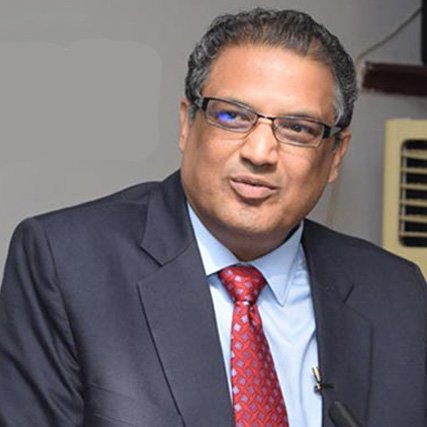Global Speakers’ House, Retribution Nagar
Honourable Speaker Ayaz Sadiq Sahib,
Good afternoon and assalam-o-alaikum:
You must be familiar with my name because 52 years ago, when the unanimous Constitution of 1973 was approved, I was the Speaker of the National Assembly. After the approval of the Constitution, I Fazal Elahi Chaudhry of Gujrat became the first constitutional President of Pakistan, and in my place, Sahibzada Farooq Ali Khan of Multan became the Speaker. On the commemorative board of Speakers, you must have read the names of the former and late Speakers. All of us Speakers live together in the Hereafter along with other departed international Speakers.
Since last week, Speakers from all over the world have been inquiring of me about you asking what the role of Speakers used to be and what it is now. In the past, what procedures did Speakers follow during legislation and amendments, and what methods are adopted these days? In the past, on which occasions did Speakers play a role in political reconciliation in Tazadistan (the land of contradictions), and when did they, against their constitutional duty, add fuel to conflict?
Parliament or the National Assembly is, in fact, the public representation within government and state, whereas the Speaker is the guardian of this House. The Speaker stands above the ruling and opposition parties and is the most dignified figure among the elected representatives of the nation.
Honourable Speaker Sahib!
You must know that the President and Speaker of Pakistan’s first Legislative Assembly was Quaid-e-Azam Muhammad Ali Jinnah. In the Hereafter, whenever Pakistanis face any trouble, we turn to the Quaid for guidance. This time, since the matter was about the amendments in the Constitution of 1973, we also requested Zulfikar Ali Bhutto to accompany us. The father of the legendary British Speaker John Bercow was also invited there in honorary capacity, because John Bercow, during Brexit, made parliamentary authority recognized across the world. It is John Bercow whose “Order, Order!” has become the global voice of parliamentary authority and the symbol of public aspiration.
Sahibzada Farooq Ali, Malik Meraj Khalid and others were also among those who appeared before the Father of the Nation. The Quaid first congratulated all departed Pakistani souls on Pakistan’s victory over India. Miss Fatima Jinnah, dressed in a white sari and wearing a white garland, was also present beside the Quaid. Zulfikar Ali Bhutto was seated with his wife Nusrat Bhutto and Benazir.
I began the session and submitted before the Quaid that large changes and amendments were being made to the unanimous Constitution of 1973. All Pakistani souls thought that if there was a need for any amendment, it was only the clarification of Article 140, so that local governments could be constitutionally and financially autonomous, and the problems of millions of people could be solved at the local level.
I also submitted that the amendments made so far are either about limiting the independence of the judiciary or about securing and protecting the government and establishment. I said that though the judiciary misused its independence and, violating the Constitution, played a trump card role in changing prime ministers limiting it was necessary — the impression now being created is that all legislation is aimed at protecting positions and strengthening the government, not for public welfare, access to cheap justice, or the prosperity and development of the poor.
Malik Meraj Khalid began giving arguments in favor of these constitutional amendments and said that these amendments, including the 27th Amendment, were necessary to keep the system running. Sahibzada Farooq Ali Khan said that through these amendments, the spirit of the Constitution is being violated — that now the country does not have a hybrid system but a semi–martial law has been imposed.
Now all eyes turned toward Zulfikar Ali Bhutto. Bhutto Sahib was continuously whispering with Benazir and Nusrat Bhutto in consultation. Finally, Miss Fatima Jinnah said that since the heirs of the Bhuttos are in the coalition government, therefore you should give your opinion. Bhutto Sahib and Benazir remained silent; Nusrat Bhutto said that my grandson Bilawal Bhutto has abolished all controversial amendments only structural reforms within the army are being made, which became necessary after the recent Pak-India war.
Meanwhile, it seemed that Benazir whispered something into her mother’s ear, upon which Begum Nusrat Bhutto shivered slightly, changed her posture, and fell silent.
When all the discussions ended, the Father of the Nation spoke:
He said that the recent victory in the Pak-India war has brought a wave of happiness among the Pakistanis of the Hereafter, but now there is a need to end divisions within the nation and move toward unity and reconciliation.
In conclusion, Quaid-e-Azam said:
“Our country was created through democracy and elections, and its future also lies in democracy and civil liberties. If these freedoms are restricted, the country will not benefit but will suffer loss.”
At the Quaid’s final words, Bhutto Sahib and all others stood up and applauded. Sahibzada Farooq Ali Khan chanted, “Long live democracy!” Malik Meraj Khalid added, “Long live the army and democracy!”
In my closing remarks, I thanked all the attendees and said that Pakistan’s democratic souls are watching the constitutional and legal changes closely. If matters go to the point of directly harming democracy, we will reconvene and pass a unanimous resolution in favor of democracy and civilian freedoms — and Quaid-e-Azam will directly write to the Prime Minister and President of Pakistan, urging them for reform and correction of affairs.
Honourable Speaker Sahib!
I personally have complaints and grievances against you, that you are sitting silent like the Speaker of the Majlis-e-Shura (Consultative Council). A democratic Speaker should be like Britain’s John Bercow, who connects the public, fosters political reconciliation, and safeguards democratic values. Many elections have passed, much time has gone by, yet the National Assembly remains like a fish market. For ages, our ears have longed to hear pleasant stories about politics and democracy.
You were given an opportunity; leaders of both major parties met under your chairmanship yet no settlement, no formula, could be finalized. The situation is so bad that even the preliminary steps necessary to make negotiations fruitful could not be completed. The people of this country have legitimate grievances against you — you are the guardian of the House of the People. You should have played a role for reconciliation, mediation, and to make parliamentary proceedings dignified — but such a role is not visible.
I recall the saying of India’s legendary Speaker Prem Shankar Jha:
“The Speaker wears a garland of thorns if he leans toward the government, the opposition becomes angry; if he supports the opposition, the government makes his life miserable.”
Honourable Speaker!
You are a dignified, courteous, and democratic man. Instead of sitting with folded hands, you should be moving your hands and feet to resolve the crisis.
Wassalam,
Fazal Elahi Chaudhry
Former Speaker, National Assembly of Pakistan
Former President of Pakistan
 Colors
Colors  View Books
View Books 



